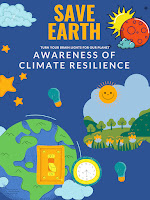Vector Borne Diseases, Public Health Risks and Mitigation Strategies
(Ed. Dr. Prashant Kale)
Mosquito-borne diseases pose significant public health risks worldwide, particularly in tropical and subtropical regions. These diseases are transmitted to humans through the bites of infected mosquitoes, and they can lead to severe health outcomes, including death.
In
addition to posing significant risks to human health, mosquito and fly-borne
diseases also impact domestic animals, exacerbating public health and economic
burdens. Mosquitoes can transmit heartworm disease (Dirofilaria immitis) in
dogs, causing severe cardiovascular issues that can be fatal if untreated.
Flies, particularly biting flies such as stable flies (Stomoxys calcitrans) and
tsetse flies (Glossina spp.), are vectors for diseases like bovine
trypanosomiasis (Nagana) and African horse sickness, affecting cattle and
equines, respectively. These diseases lead to reduced productivity, weight
loss, and in severe cases, death, impacting livestock health and agricultural
economies. Effective vector control, vaccination, and animal health surveillance
are crucial in mitigating these risks and protecting both human and animal
populations from the deleterious effects of mosquito and fly-borne diseases.
Below
is an elaborate look at the public health risks associated with mosquito-borne
diseases:
Major Mosquito-Borne Diseases
- Malaria:
- Caused by: Plasmodium parasites, transmitted by Anopheles mosquitoes.








